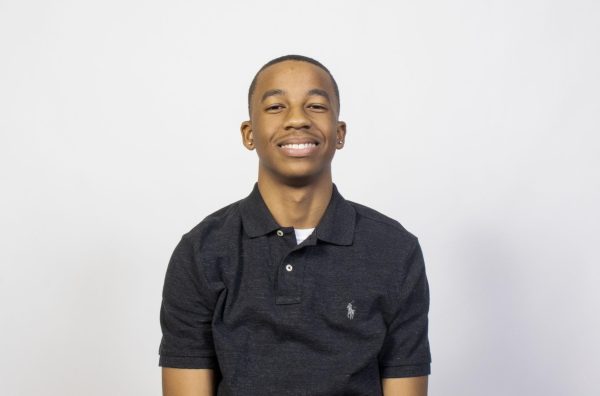Column: Derek Chauvin’s trial will hopefully deliver justice
April 8, 2021
As we are approaching almost a year since George Floyd’s death, his accused killer Derek Chauvin is on trial.
Watching the trial footage is moving. I teared up hearing the witness testimonies. I can’t help but imagine what was going through Floyd’s head, and everyone who was there at the time. I think about how desperate people must have felt to help this man but knowing they couldn’t. For nine minutes, these people had to watch an innocent life being taken by the people we are supposed to trust.
On May 25, 2020, George Floyd was arrested by police in Minneapolis after being accused of paying for a pack of cigarettes with a $20 counterfeit bill, according to the New York Times. Instead of handling the incredibly non-threatening situation professionally, Chauvin held his knee down on the back of Floyd’s neck.
There has been talks of drugs being in Floyd’s system at the time of death, according to the autopsy done by the Hennepin County medical examiner. The medical examiner’s autopsy also suggested that underlying conditions were a part of the cause of death, according to the New York Times.
However, what I believe is the private autopsy, paid for by the family and performed by the University of Michigan. This autopsy suggested that even if drugs were really in his system, it wouldn’t have mattered. It also said that he was in good health, not in bad health like the medical examiner suggested. The private autopsy says that he died due to mechanical asphyxia, or pressure blocking an airway causing death due to lack of air.
Genevieve Hansen, a firefighter who witnessed the death, said in her witness testimony that she tried to intervene and check Floyd’s pulse multiple times but was denied by the police.
Another witness was just nine years old. She testified that the paramedics at the scene repeatedly asked the officers to get off Floyd. No nine-year-old should ever have witnessed a traumatic event like this.
Police Chief Medaria Arradondo criticized Chauvin’s actions, according to CNN. He testified, saying, “Once Mr. Floyd had stopped resisting, and certainly once he was in distress and trying to verbalize that, that should have stopped.”
Chauvin’s trial will be going on for the next four weeks, as reported by NPR. Hopefully, by the end of it we will have some sense of justice for George Floyd. Unfortunately, this doesn’t bring him back and it also doesn’t provide justice to all the other Black people who have been killed by police.
Gillian Eubanks is a junior health communication major. She can be reached at 581-2812 or [email protected].











































